Are you searching for a way to stand out among other applicants in the same field? If your answer is yes, you need to create an impressive consultant resume that will catch the attention of potential employers. To help you get started, we have prepared this blog post with all the information you need on how to write a resume for a consultant, as well as practical examples and advice. Our resume should be able to sell us in just a few seconds, so it needs to be organized and structured effectively. In this blog post, you will find details on what personal CV vs. professional CV to use, how to write skills section, an example of special skills section, accounting skills resume sample, tips on including school activities, and much more.
Consultant Resume Example

Download This Consultant Resume as PDF
Business Consultant Resume Example
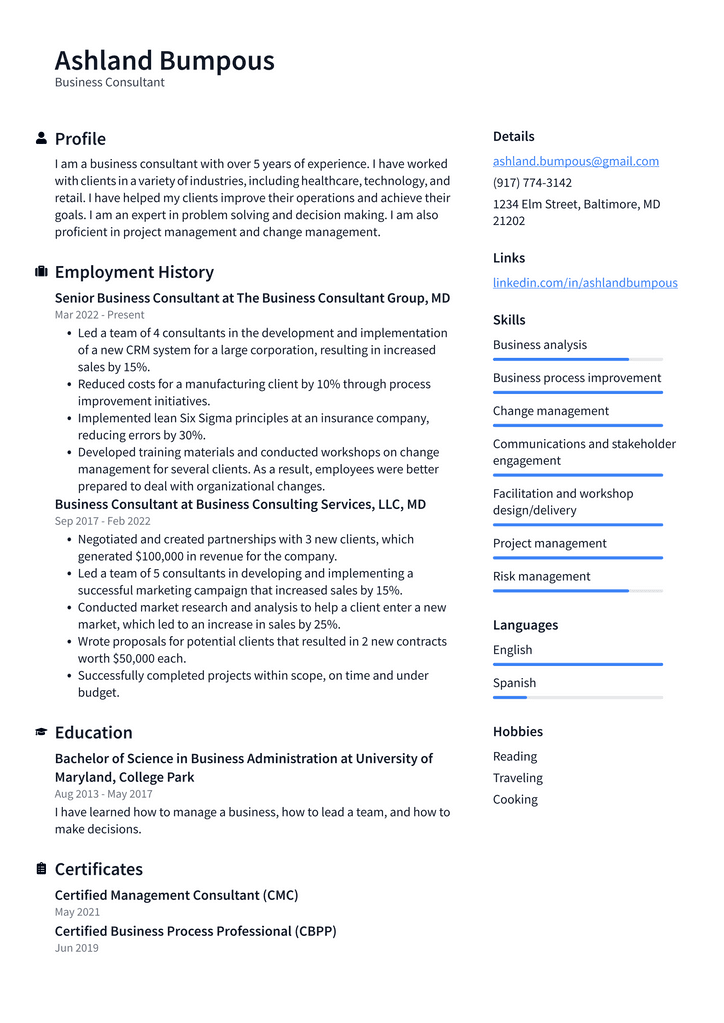
Download This Business Consultant Resume as PDF
Recruitment Consultant Resume Example
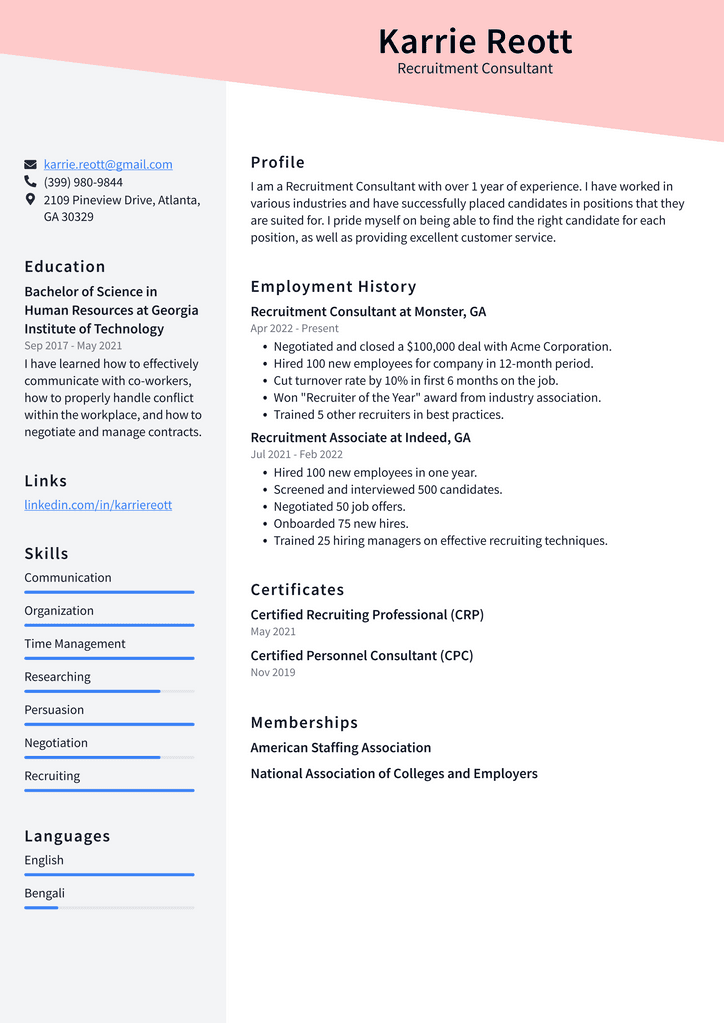
Download This Recruitment Consultant Resume as PDF
Sales Consultant Resume Example
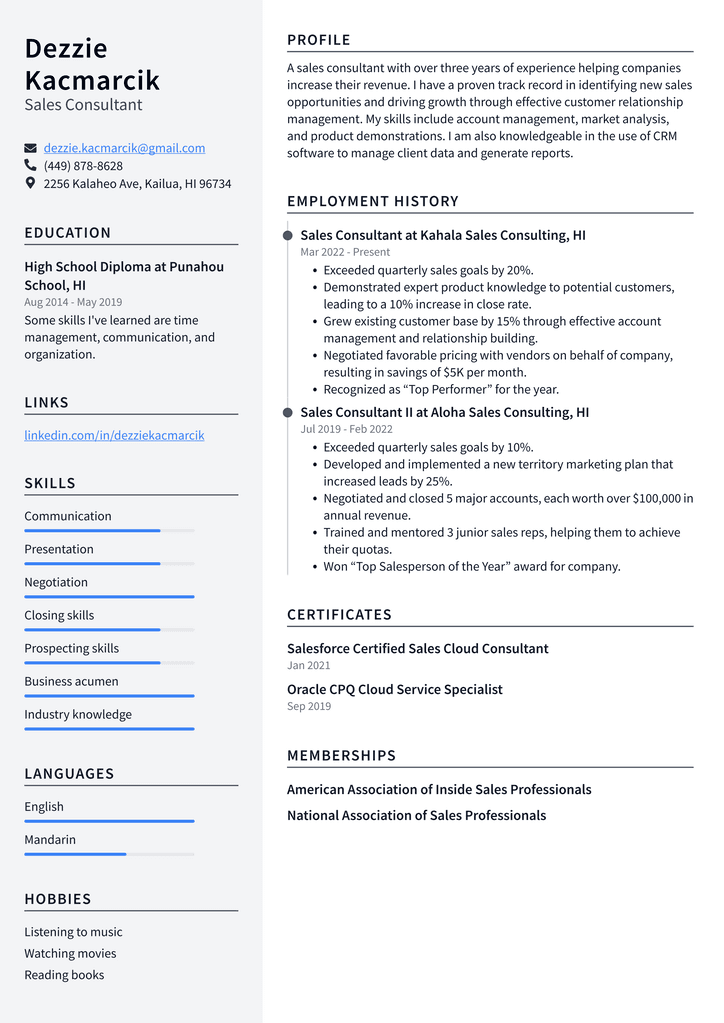
Download This Sales Consultant Resume as PDF
IT Consultant Resume Example
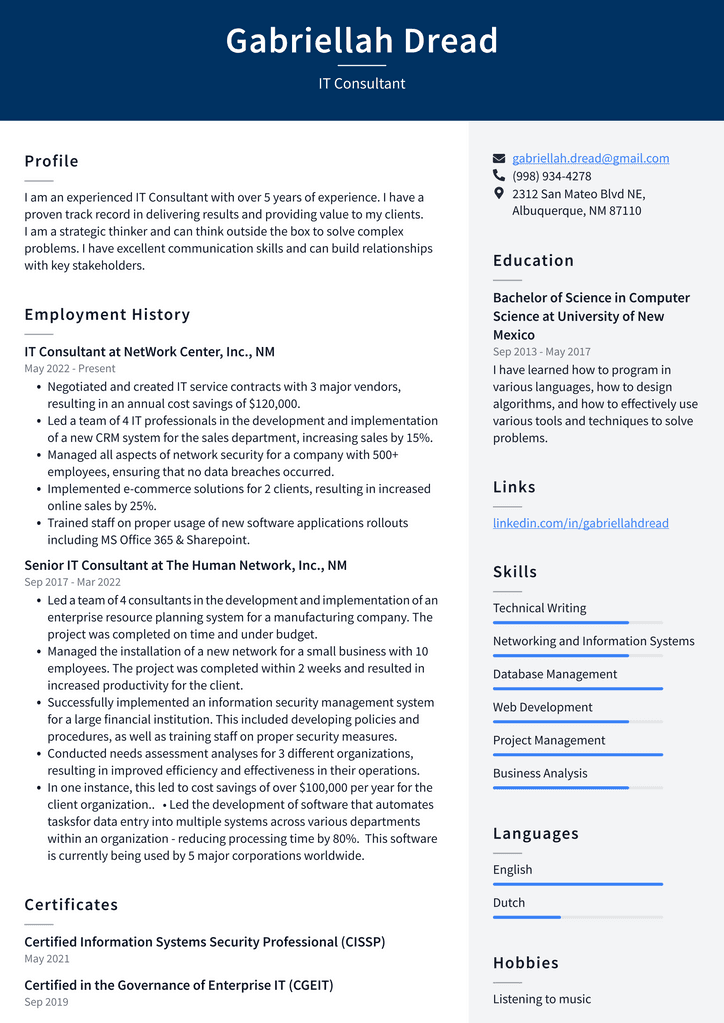
Download This IT Consultant Resume as PDF
Management Consultant Resume Example
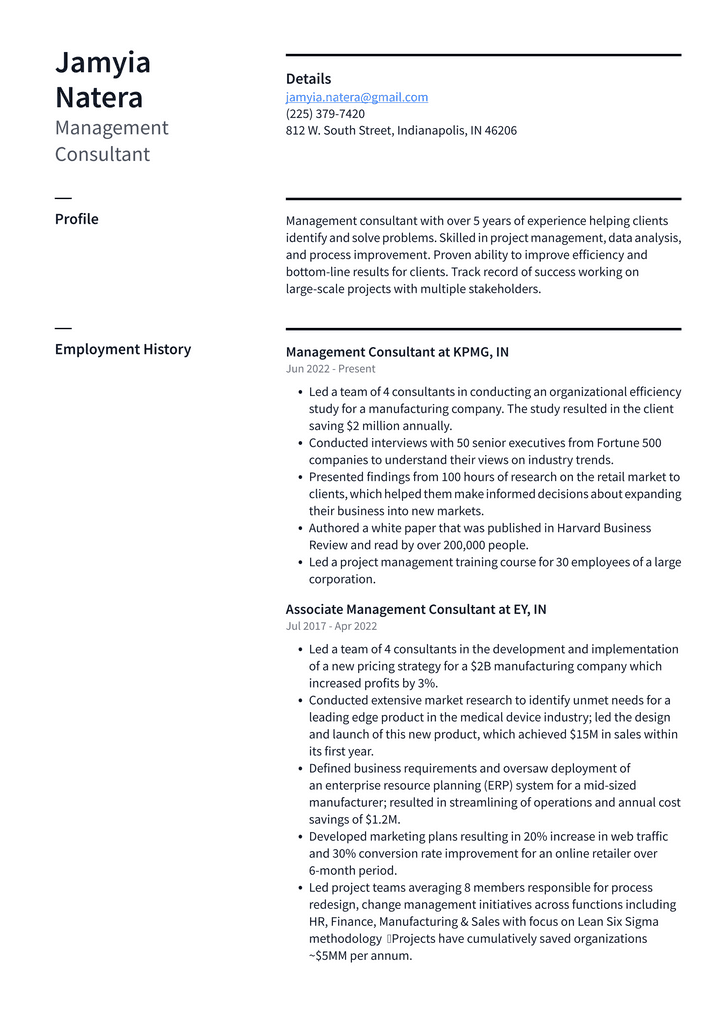
Download This Management Consultant Resume as PDF
Financial Consultant Resume Example
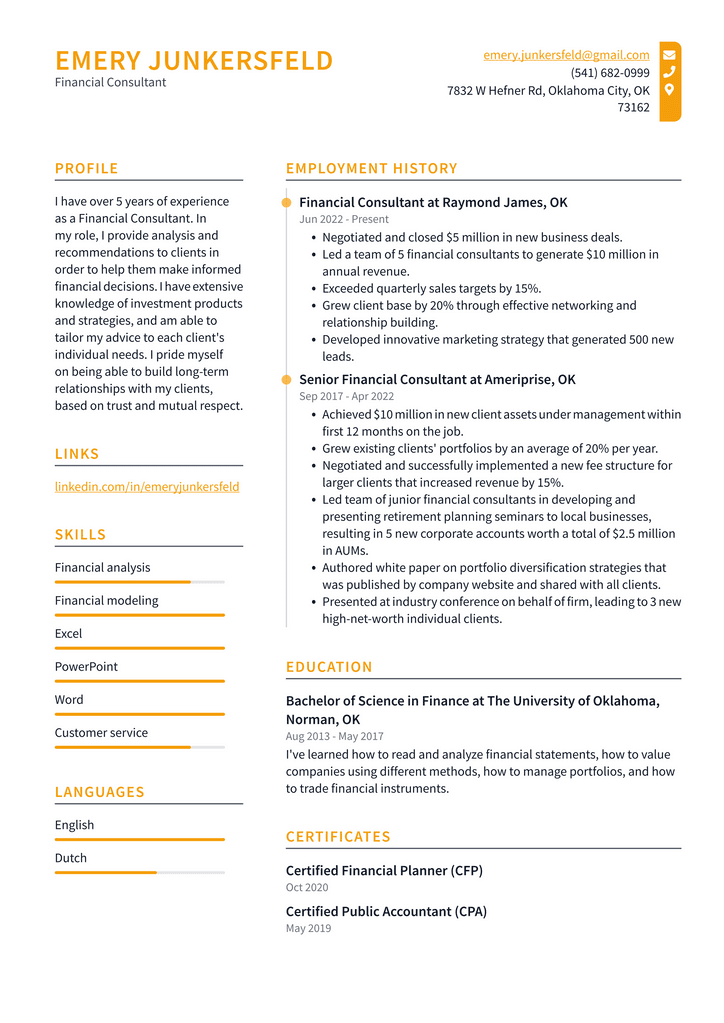
Download This Financial Consultant Resume as PDF
What is a Consultant Resume?
A consultant resume is a document highlighting your experience, skills, and achievements to help you get a job as a consultant. The critical difference between a consultant resume and a standard resume is that a consultant resume focuses on the services you offer, the value you can bring to the company, and how you solve problems rather than your past work experience and skills. A resume for a consulting job should be different from a regular resume because you’re not just selling your previous work experience – you’re selling your skills and how they apply to the job that you’re applying for.
Why Having a Good Resume is Important for Consultants
The resume is often the first and most important tool when applying for a job. It lets the employer know your skills and experience so that they can decide whether or not to call you in for an interview. It also allows you to make an excellent first impression of the employer. The resume will enable you to highlight your strengths and skills and the experience you have gained from previous jobs. For example, if you want to be considered for a job as a consultant, you must write a great resume that will catch the employer’s attention. Employers are usually looking for candidates who can bring added value to their organization by solving a specific problem or developing new products or services.
When to use a Professional Resume and when to use a Consultant Resume?
There are times when you will have to use a professional resume, while there are also other times when you will have to use a consultant resume. The type of resume you have will depend on the job you are applying for and your skills and qualifications. For example, a professional resume is an ideal choice when applying for jobs requiring a certain level of experience, such as an entry-level job. It is also used when applying for jobs in the same field as your current job. On the other hand, a consultant resume is an ideal choice when applying for a position that focuses on your skills and expertise, such as a managerial or senior-level position.
Structuring your resume
While your resume should be tailored to the job you are applying for, a few basic guidelines can help you create a good resume. One of the most important things to keep in mind when writing your resume is that you should keep it concise. An employer will not want to read a 10-page summary, so you should try to keep it to one page. Another thing to remember is that you should write a chronological resume. This means you should list your employment history, starting with the most recent job and working your way backward. While your resume should include all relevant information, you don’t want to write your life story. It would help if you kept your resume focused on your skills and what value you can add to the organization.
Checklist for Writing Your Own Consulting Resume
Make sure to use a clean and crisp template – Or you can use our resume template below to help you write your resume. Keep your resume to 1 page – You don’t want to bore your employer with a super long recap, so keep it short and sweet. Highlight your most recent work experience – You should start with your most recent work experience, listing your title and the company you worked for. Include your education – You should also include your education and any relevant training you have completed. Include your skills – List all skills you have acquired throughout your lifetime, including both computer and non-computer skills. Make sure to include your special skills – Also, make sure to include any special skills that you have acquired throughout your lifetime. Include your hobbies and interests – You should also make sure to include any hobbies or interests that you have so that you can show your employer that you are a well-rounded person. Finally, ensure your resume is error-free – You should also ensure that your resume is error-free so that you don’t have to worry about correcting mistakes.
Conclusion
Now that you know what a consultant resume is and what should be included, it’s time to get to work. Use the information in this article as a guide when writing your resume to stand out among other applicants and helps you get a job as a consultant. Remember that the key to a successful resume is including all of your skills and experience and making sure that it is concise and error-free.